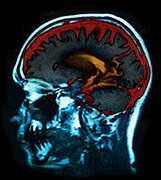Sucrose, but not aspartame, consumption linked to reduced stress-induced cortisol
WEDNESDAY, April 22, 2015 (HealthDay News) — Sucrose, but not aspartame, consumption is associated with higher activity in the left hippocampus and reduced stress-induced cortisol, according to a study published online April 16 in the Journal of Clinical Endocrinology & Metabolism.
Matthew S. Tryon, Ph.D., from the University of California in Davis, and colleagues tested a hypothesized glucocorticoid-metabolic-brain model in women consuming beverages sweetened with aspartame or sucrose in a double-masked diet intervention study. Nineteen women with a body mass index of 20 to 34 kg/m² were included in the study. Participants consumed sucrose- or aspartame-sweetened beverages three times per day for two weeks.
The researchers found that sucrose consumption correlated with significantly higher activity in the left hippocampus compared with aspartame (P = 0.001). Sucrose consumption was also associated with decreased stress-induced cortisol (P = 0.024), but aspartame consumption was not. Lower reactivity to naltrexone, significantly lower nausea (P = 0.041), and a trend toward lower cortisol (P = 0.080) were also seen in the sucrose group.
“These experimental findings support a metabolic-brain-negative feedback pathway that is affected by sugar and may make some people under stress more hooked on sugar and possibly more vulnerable to obesity and its related conditions,” the authors write.
Copyright © 2015 HealthDay. All rights reserved.








